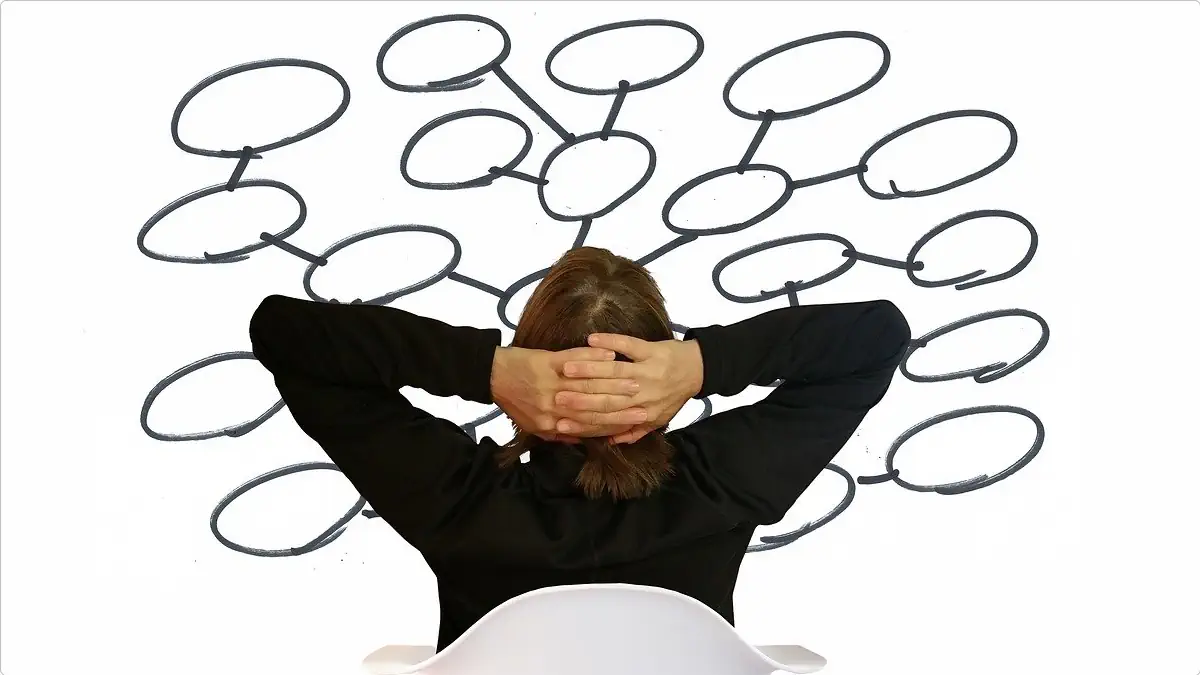Table of contents
- Understanding Personal Development and Self Improvement
- Benefits of Mastering Personal Development
- Setting Goals for Effective Self Improvement
- Mindfulness and Meditation for Self Improvement
- Building a Growth Mindset for Long-Term Success
- Building Positive Habits for Sustained Self Improvement
- Overcoming Procrastination to Achieve Self Improvement Goals
- Cultivating Emotional Intelligence for Personal and Professional Growth
- Practicing Gratitude to Boost Your Self Improvement Journey
- FAQs on Mastering Self Improvement and Personal Development
- Conclusion: Embrace the Journey to Unleash Your Full Potential
In a fast-paced world, where many seek more satisfaction and success, unlocking your potential often begins within. “Mastering your mind” isn’t a mystical process but rather a journey of self improvement and personal growth. It requires discipline, awareness, and the willingness to evolve. Through focused actions and mental shifts, you can embrace your best self and set the stage for a fulfilling, successful life.
Understanding Personal Development and Self Improvement
Personal development revolves around enhancing one’s capabilities, self-awareness, and overall effectiveness. It involves setting goals, learning new skills, and fostering a resilient mindset. Self improvement, a vital part of personal development, focuses on bettering specific aspects of oneself, such as health, relationships, or productivity. When you take these steps seriously, each improvement builds upon the last, creating a profound change.
To truly master your mind, you must first understand what limits you and what drives you forward. By doing so, you can break free from self-imposed barriers and start harnessing the power within.
Benefits of Mastering Personal Development
Mastering personal development impacts your mental well-being, physical health, and emotional balance. With a proactive approach to growth, you can overcome negative patterns and implement strategies to lead a more intentional life. Let’s delve into some of the core benefits of embracing self improvement through personal development practices.
Enhanced Focus and Productivity
Personal development equips you with tools to channel your energy efficiently. By setting clear priorities and maintaining discipline, your focus sharpens, and your productivity rises. With each small success, your confidence grows, reinforcing your commitment to self-discipline and growth.
Strengthened Resilience
Life is unpredictable, and challenges are inevitable. Building resilience is essential in adapting to change and overcoming obstacles. Personal development teaches you how to turn setbacks into opportunities, promoting mental flexibility that enhances your ability to bounce back.
Improved Relationships
By understanding yourself better, you can relate to others more authentically. Self-awareness allows you to recognize and communicate your needs while being empathetic to others. Improved relationships are often an unexpected yet transformative result of prioritizing personal growth.
Setting Goals for Effective Self Improvement
A crucial part of self improvement is setting realistic and measurable goals. Goals help shape your path, providing a destination for your growth journey. When setting goals, think about areas in your life that could benefit from attention and consider the steps needed to enhance them.
Identify Areas for Growth
Start by identifying aspects of your life that need improvement. Perhaps you wish to be more organized, communicate better, or adopt healthier habits. Whatever your areas of growth, list them clearly and consider why each matters to you. The “why” behind each goal will help keep you motivated and focused.
Create SMART Goals
SMART goals (Specific, Measurable, Achievable, Relevant, and Time-bound) make your intentions tangible. For instance, rather than setting a vague goal like “be more productive,” a SMART goal would be, “dedicate two hours each day to focused work for the next month.” Specificity in goals keeps you on track and ensures that your efforts yield visible results.
Mindfulness and Meditation for Self Improvement
Developing mindfulness is one of the most effective ways to foster self improvement. Mindfulness teaches you to observe your thoughts without judgment, allowing you to understand your mental patterns better. Incorporating meditation and mindfulness exercises into your routine can significantly impact your overall well-being.
Benefits of Mindfulness
Mindfulness cultivates self-awareness, reducing stress and enhancing emotional stability. Regular practice helps break habitual responses, allowing you to choose how to respond rather than reacting impulsively. Over time, mindfulness strengthens your focus, making it easier to pursue personal development goals.
Simple Meditation Techniques for Beginners
For those new to meditation, starting small is key. Begin with five-minute sessions where you focus on your breath. Gradually increase the duration as you become more comfortable. Apps like Headspace or Calm offer guided meditations that provide structure, easing beginners into a regular practice.
Building a Growth Mindset for Long-Term Success
A growth mindset embraces challenges and values learning. By adopting this mindset, you’ll see setbacks as opportunities rather than failures. This approach is integral to self improvement as it encourages resilience and persistence.
Challenge Limiting Beliefs
Limiting beliefs often hinder progress. They are self-imposed mental barriers that make us doubt our abilities. Common limiting beliefs include “I’m not smart enough” or “I’ll never be successful.” Challenge these thoughts by identifying where they stem from and replacing them with affirmations that support your goals.
Embrace Failure as a Learning Opportunity
Failure offers valuable insights. Instead of fearing it, view each setback as a lesson in resilience. By analyzing what went wrong, you gain practical wisdom to apply to future efforts, bringing you closer to mastery over your personal development journey.
Boost Your Happiness: Mastering Communication for Better Bonds
Building Positive Habits for Sustained Self Improvement
Positive habits provide the structure necessary for sustained self improvement. Developing routines can ease the process of integrating positive changes into daily life.
Start Small for Big Results
When building new habits, start with small, manageable actions. For instance, if your goal is to exercise more, begin with a ten-minute walk each day. Small steps lead to lasting habits because they are easier to commit to consistently.
Use Habit Tracking Tools
Apps like HabitBull and Streaks help track progress and hold you accountable. Watching your achievements add up boosts motivation and reinforces your commitment to self improvement.
Overcoming Procrastination to Achieve Self Improvement Goals
Procrastination can stall your personal growth. Identifying the root causes of procrastination can help you adopt strategies to overcome it and make meaningful progress.
Understanding the Triggers
Procrastination often arises from fear of failure, lack of motivation, or feelings of overwhelm. Recognize which triggers affect you the most. Awareness allows you to confront these obstacles more effectively.
Break Tasks into Manageable Steps
Dividing large tasks into smaller, actionable steps makes them less daunting. Rather than tackling an entire project in one go, focus on completing one part. Gradually, small actions build momentum, making progress smoother and faster.
Cultivating Emotional Intelligence for Personal and Professional Growth
Emotional intelligence (EQ) involves understanding and managing your emotions, as well as recognizing others’ feelings. High EQ fosters empathy, improves relationships, and enhances decision-making. Working on emotional intelligence supports self improvement across personal and professional areas of life.
Develop Self-Awareness
Self-awareness is the foundation of emotional intelligence. Reflect on your emotions, observe how they impact your actions, and learn to manage them. Regularly check in with yourself to evaluate how you feel, especially in stressful situations.
Practice Active Listening
Listening actively means fully focusing on the speaker and understanding their perspective. By doing so, you build trust and improve communication. Active listening also encourages mutual respect, which is essential for strong, healthy relationships.
Practicing Gratitude to Boost Your Self Improvement Journey
Gratitude transforms your mindset, shifting your focus from what you lack to what you have. Regular gratitude practices can improve mental health, boost happiness, and reinforce a positive outlook.
Keeping a Gratitude Journal
Writing down things you’re grateful for each day encourages positive thinking. Gratitude journals are effective because they provide a physical reminder of the good in your life. Reflecting on past entries can lift your spirits and keep you motivated toward self improvement.
Expressing Appreciation to Others
Share gratitude by acknowledging the people who positively impact your life. Expressing appreciation strengthens your relationships and encourages others to adopt similar positive practices.
FAQs on Mastering Self Improvement and Personal Development
- What is self improvement?
- Self improvement is the conscious effort to improve oneself, whether mentally, physically, or emotionally. It involves setting goals, developing skills, and adopting positive habits to lead a more fulfilling life.
- How can I start with personal development?
- Starting with personal development involves setting realistic goals, focusing on one area at a time, and practicing self-discipline. Small steps, like learning a new skill or improving self-awareness, lead to meaningful growth over time.
- Why is a growth mindset important?
- A growth mindset is essential because it enables you to view challenges as learning opportunities. This perspective encourages persistence and resilience, qualities vital to achieving self improvement goals.
- What role does emotional intelligence play in personal development?
- Emotional intelligence helps you understand and manage emotions, improving your interactions and decision-making. High emotional intelligence fosters better relationships and a balanced, mindful approach to life.
- How can I stay motivated on my self improvement journey?
- Setting achievable goals, celebrating small successes, and tracking your progress can keep you motivated. Surrounding yourself with supportive people and maintaining a growth mindset further sustains motivation.
- How does mindfulness help in self improvement?
- Mindfulness enhances self-awareness, reduces stress, and promotes mental clarity. It helps you become more in tune with your thoughts and behaviors, allowing you to make mindful choices that align with your self improvement goals.
Conclusion: Embrace the Journey to Unleash Your Full Potential
Mastering your mind and unlocking your full potential is a journey, not a destination. Self improvement and personal development require dedication, patience, and resilience. By cultivating positive habits, practicing mindfulness, and embracing a growth mindset, you’ll find that every step forward brings you closer to your best self. While the road may have challenges, the rewards of self-mastery are well worth the effort. Start today, and let each improvement, no matter how small, propel you toward a more empowered and fulfilled life.













1 thought on “Master Your Mind: Secrets to Unleashing Your Full Potential”